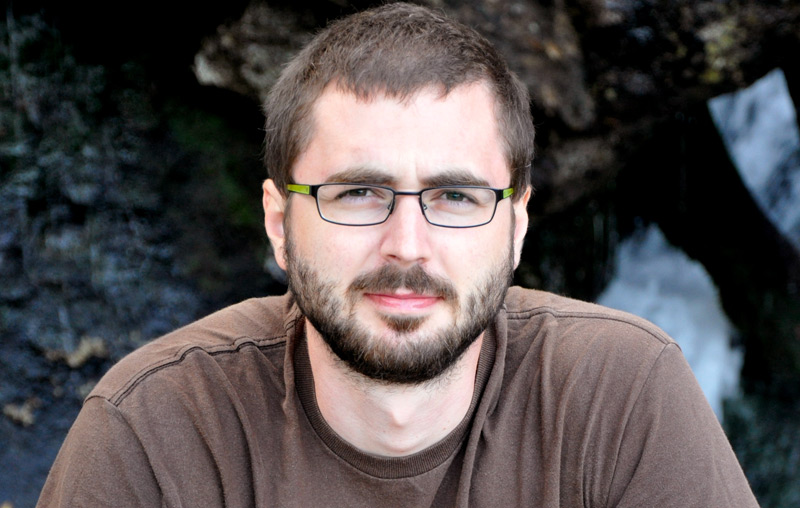about the production
The autobiographical bestseller by American novelist Joseph Heller remains a perennial work despite the fact that it was published in 1961. This original adaptation of Heller’s novel preserves the book’s general storyline, but through the structure of a collage of brief situations, it allows the creators to achieve a unified interpretation while preserving their own, individual perspectives.
Director Ján Luterán and dramaturge Miro Dacho, as well as set designer Michal Lošonský and composer Ján Kružliak Jr., have drawn on ingenious creative methods in presenting this cult novel on the theatrical stage.
In the context of the faces of freedom, the adaptation already contains a pre‑ script in its title. The ambivalent nature of bureaucracy is a theme that has enjoyed much attention. If Max Weber describes bureaucracy as the product of the rationalisation of man’s social behaviour, Heller unmasks this rationalisation as irrationality in all its absurdity and monstrousness, where goals take primacy over values. The human being or rules? Who assumes responsibility for the morality of the ultimate result of bureaucracy? Yossarian fights an impersonal, bizarre entity, who, gradually and through a tangle of rules, procedures and orders, drives him further and further away from personal freedom.
The creators have opted for a universal space without concrete historical or geographic location. They make full use of Studio DAB – in both its horizontal and vertical dimensions. They expose technical balconies, actors move among the audience, perform in the hallway outside the theatre, doors and curtains are actively involved in dramatic situations.
Guest actor Daniel Ratimorský provides a counterpoint to the rest of the crew with his unaffected performance. In a story about people who, amid military service and all kinds of horrors, give up their freedom and instead accept incomprehensible rules. “The only exception is the protagonist, Captain Yossarian, who looks for a way to extricate himself from the situation. But he does not represent a hero without respect or blame, a genius or chosen one, but rather a very ordinary human being who is trying to live and survive without dogma, to keep with his own vision and rules,” says dramaturge Miro Dacho.
The young generation in the Nitra actors’ crew exploit the author’s bizarre formulation of the characters and forge them into stylised humorous figures. Director Ján Luterán avails himself of local Slovak socio‑political context to amplify an indictment against the corruptness of the Slovak power hierarchy. “We have chosen this title because we think its theme is still relevant. We try to develop war, which is the principal motif of Heller’s novel, into wars that are not necessarily represented by bombs and weapons, namely those wars that we fight each day, from corruption, arrogant power, relationship wars, when empathy and morality are lacking. The absurdities described in Catch‑22 can quite easily match the absurdities from today’s newspaper,” the play was described by director Ján Luterán.
Composer Ján Kružliak Jr. makes use of the actors’ sense for music and, closely mirroring the playful directorial style of Ján Luterán, alternates between the drama of army marches and elaborate passages of a capella.
It is not just the senselessness of war that Heller and the creators of the production in Nitra uncover so relentlessly. We are looking at the opportunism of individuals who abuse war to their own advantage, we laugh and cry at the commanders’ incompetence, classify lunatics by type, but above all, we face our own fear.
Júlia Rázusová
creators
direction: Ján Luterán
translation: Pavel Vilikovský
costumes: Eva Kleinová
dramaturgy: Miro Dacho
set design: Michal Lošonský
music: Ján Kružliak ml.
light design: Ján Ptačin
adaptation: Miro Dacho, Ján Luterán
characters and cast: Yossarian: Daniel Ratimorský, Chaplain, Patient’s brother: Marián Viskup, Milo Minderbinder, Military Cop: Peter Oszlík, Lieutenant colonel Korn, Clevinger: Martin Fratrič, Colonel Cathcart: Branislav Matuščin, Major Major, Captain Black: Juraj Ďuriš, Doctor Danneka, Man from Security: Martin Nahálka, Nately, Snowden: Andrej Remeník, Sergeant Towser, Hafi: Tomáš Stopa, McWatt, Doctor Sanderson: Tomáš Turek, Daneek’s Wife, Luciana, Nately’s Bitch: Barbora Andrešičová, Dannek’s Mother ‑in ‑low, Nurse Duckett, Patient’s Mother: Lenka Barilíková
director

Ján Luterán (1984) graduated in theatre directing from the Academy of Performing Arts in Bratislava. During his Erasmus programme in Prague, he completed the Viewpoints acting course under American director Anne Bogart. Luterán focuses on contemporary original drama. His graduation project There Was Once a Class (2010; first Academy of Performing Arts, later Andrej Bagar Theatre in Nitra) roused the attention of audiences and the professional community. Renowned Slovak theatre critic and historian Vladimír Štefko honoured this production with the title ‘Commedie dell’scholarum’ for intelligent satire. Luterán has worked with a number of Slovak theatres (Andrej Bagar Theatre in Nitra, Slovak Chambre Theatre in Marting, Žilina City Theatre, Jonáš Záborský Theatre in Prešov). His productions regularly appear at Czech and Slovak theatre festivals; at Divadelná Nitra, he has staged Europeana (2014) and The Great Notebook (2015). In 2010, he earned the Grand Prix from the festival Nová dráma/New Drama for his student play project.wedding; in 2013, he received the Special Jury Prize from Nová dráma/New Drama for his production Jánošík 007.
Materials available
Video of the production: yes
Scripts of the production: SK
If you are interested in these materials, write to archivy@nitrafest.sk
